Do Chinchillas Make Good Pets?
No one can resist a fluffy chinchilla face. Their big ears and hairy bodies are surreal. It doesn’t take long with a chinchilla to start having dreams of owning your own bouncy herd of them. But do chinchillas make good pets? Today we are going to talk about the good and the bad of chinchilla ownership. We will even touch a little on their basic needs to see if a chinchilla would fit in with your lifestyle.
Do Chinchillas Make Good Pets?
Yes, Chinchillas make great pets for the right person and situation. They are sweet, curious little critters that are a relatively low maintenance pet. However, Chinchillas are more exotic animals, so they would be better situated with a more experienced pet owner.
Are Chinchillas the Right Pet for You?
As with all pets, it depends on what you are looking for. Not every pet is fit for every owner, and that’s ok. Especially when dealing with a little more exotic animals, it is best to ask yourself how you will care for the pet.
Chinchillas are sweet, gentle creatures that love to explore and jump. Their favorite past times are chewing a good stick and running in a wheel. But they don’t make a good pet for everyone. Chinchillas are an excellent pet for an experienced owner. They don’t do well with small children but can be suitable for older kids with more control. Chinchillas rarely bite, but it is a possibility when protecting themselves. The real fear is that chinchillas have hollow bones that are easily broken. If your child is bitten and then drops the chinchilla, they are at risk of breaking bones.
There are a ton of pros and cons of owning a chinchilla. And seeing them all can help you make an informed decision to get one for your family.
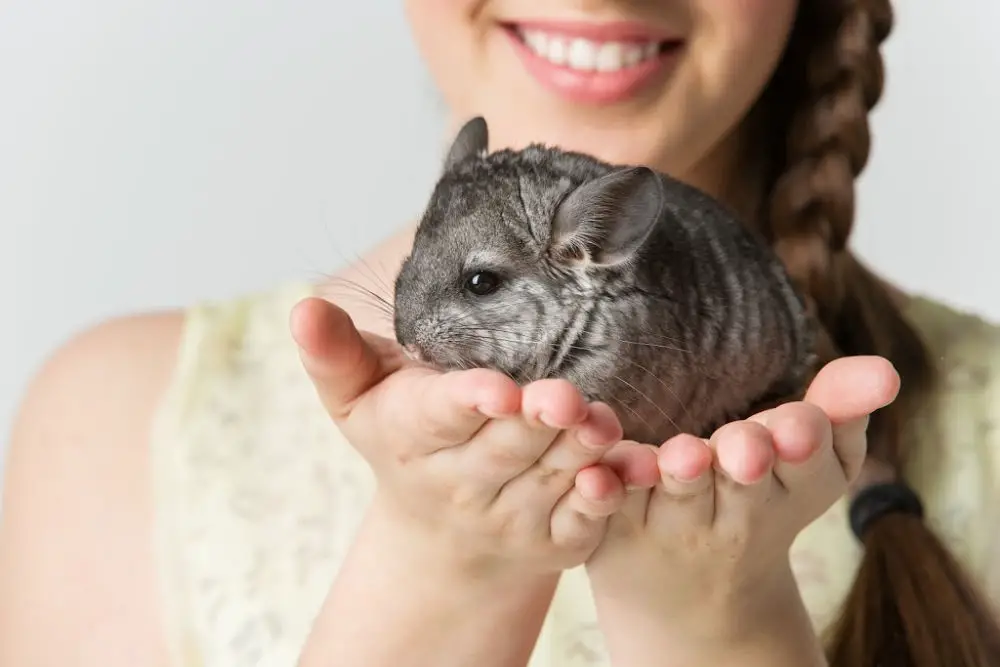
Pros Of Owning Chinchillas
- The best thing about chinchillas is that they have such a long lifespan. A chinchilla can easily live 15-20 years with the right care. Of course, no time is long enough with our furry friends, but this longer lifespan makes it worth it.
- Chinchillas are also a low maintenance animal. You don’t have to worry about giving them lots of exercise or special diets. As long as they have food and clean home, they are happy.
- Everyone loves animals that are easy to clean. Chinchillas bathe themselves in chinchilla dust, so you will never have to worry about washing them. They also are easy to litter train, which makes cleaning their large cages easy.
- Chinchillas have thick, lush fur with 50-80 hairs to a single follicle! This thickness makes it impossible for them to get lice, fleas, or ticks.
- Another pro of the chinchilla’s beautiful fur is that it comes in 30 color variations. And each of these chinchillas is more gorgeous than the last. It may be hard to choose just one!
- Chinchillas are very social creatures. They love spending time with their owners and watching everything that goes on from their cage. They sometimes even like to have friends, but not all need to be in pairs.
- Your chinchilla and their cage should have virtually no smells. Chinchillas do not sweat, and their urine is almost odorless. As long as you are cleaning the cage regularly, you won’t have smells. The only time their cage will stink is when their urine sits so long that bacteria starts to grow.
Cons Of Owning A Chinchilla
- One part of owning a chinchilla that you can’t get past is how expensive it can be. Everything from the cage to the animal itself is costly. And if anything were to happen and you need a vet, that can easily cost you thousands of dollars.
- Chinchillas have very sensitive stomachs. They can’t eat a lot of treats or certain types of wood. Even if your chinchilla chews on plastic, it could be detrimental to their health. They are prone to GI tract issues and have to have a stringent diet.
- Even though they have digestive tract issues, this doesn’t keep them from chewing on everything. Chinchillas explore through their teeth, so that means a lot of unsafe things go into their mouths. Chin proofing their surroundings is critical.
- Chinchillas might be clean, but they do throw dust everywhere. Even in enclosed dust baths, you will find that the area around your cage will get a good layer of dust as well. This dust can kick up some people’s allergies as well.
- Cleaning a chinchilla cage is easy, but it is a daily task. Chinchillas poop anywhere from 300-500 pellets a day! And they love to throw it everywhere. You will need to clean the cage and area around them daily.
- Some chinchillas are very prone to dental illnesses such as Malocclusion. This is often a fatal disease in chinchillas. So keeping an eye on dental health is very important.
- And lastly, if you are looking for a cuddly animal, you might want to look elsewhere. While chinchillas enjoy the company and will be excited to see you, they do not cuddle often. If you are lucky, you will have a chin that loves scratches. But every chinchilla is a little different.
Basic Chinchilla Care
Did you make it through the pros and cons, alright? If so, then you might be a great candidate for owning chinchillas. Next, we will talk about the most basic care for your chinchilla. These are just a few things to get you started and informed about significant points. Our quick guide will put you on the path to ask more questions and do more research.
CAGE – Chinchillas love to climb and jump around. For your chinchilla to thrive, they do best in a multilevel cage that is at least 3 feet tall, but taller is always better. The average chinchilla has no problems jumping 6 feet into the air, and they love to do it. So if you have the room to have a taller cage, you should get one. And for people housing multiple chinchillas, you will need a cage with two square feet per chinchilla to prevent overcrowding.
BEDDING – Most chinchilla cages have plastic pans at the bottom of the cage. If this plastic is exposed, your chinchilla could chew on it and develop intestinal problems. We recommend covering the floors with fleece to prevent this. Fleece is cheap to buy and can be washed in the laundry for reuse. We recommend having several changes of fleece to be switched out every three days. If the fleece is left longer than that, it can grow bacteria and begin to smell. This bacteria can even give your chinchilla infections on their feet called bumblefoot.
DIET – The only things that your chinchilla needs to have are fresh timothy hay and a high-quality pelleted diet. No fruits, vegetables, or nuts should ever be given to chinchillas as it can cause bloat. There are a few treats that are safe when used sparingly like bee pollen, dried rose hips, and applewood, to name a few.
EXERCISE – A chinchilla’s primary source of activity is a wheel. These wheels need to be at least 14-15 inches in diameter. Fifteen inches is large enough that your chinchilla won’t bend their backs while running comfortably. If you have a large cage size, there generally is no need to let them out to play. But if you feel like this is something you want to do, there are a few precautions. Chinchillas overheat easily, so make sure that they can go back to their houses to cool off. And always chin proof the area before letting them out. If their heads can fit through, their whole bodies will too. And if you want to be extra cautious, you can buy a playpen with tall sides.
TOYS – Chinchillas love to play. They love to play with willow balls, chew sticks, and even on ledges. Since their teeth continuously grow, you will want to make sure they have plenty of chew sticks available.
LITTER – Many people prefer to litter train their chinchillas, and it’s relatively easy. You will want to choose a metal or glass dish that is large enough and fill it with pine bedding. Then wait to see where your chinchilla prefers to go to the bathroom. Place your litter pan in that corner and wait for them to go. Some chinchillas will try to move the pan or choose another spot. That is ok. You can fasten the container in place or move it to the new area. Once you do this enough, your chinchillas will learn what the pan is for.
DUST BATHS – Chinchillas clean themselves with finely ground volcano pumice. This dust keeps their fur soft and clean by wicking away oils and dirt. You can find this in every major pet store marketed as chinchilla dust. Your chinchilla will need to have a dust bath at least once a week. But if you live in a more humid climate, they might need them more often. If you notice that your chinchilla’s fur looks oily, it is time for more baths.
CLIMATE – One of the most crucial parts of owning a chinchilla is its climate. With all that thick fur, they overheat very quickly. These animals come from high up in the cold mountains, and they prefer it cooler. The ideal temperature for chinchillas is between 60-70 degrees Fahrenheit. If your chinchilla’s room gets above 72 degrees, they could have a heat stroke. Air conditioning and cooling granite is a must for chinchillas.
What’s Your Verdict?
Do chinchillas make good pets for you? They certainly can be a little high maintenance at first. But once you get used to their care, you don’t even notice how much you have to do for them. It is worth everything for a fluffy little pet that can be fascinating to watch and play with.
Related Questions
Do chinchillas get attached to their owners?
Chinchillas are commonly bred as pets and are available at pet stores, reputable breeders, and rescue groups throughout the U.S. They tend to be affectionate, curious, social animals that can bond closely with their owners and generally like to be held close and cuddled.
Do chinchillas throw poop?
As a matter of fact, yes, they have been known to throw poop! When stressed or frustrated, many chins may resort to throwing poop as a way to communicate its displeasure with the situation. For example, a chinchilla that is frustrated by a lack of attention may throw feces at the person they seek attention.

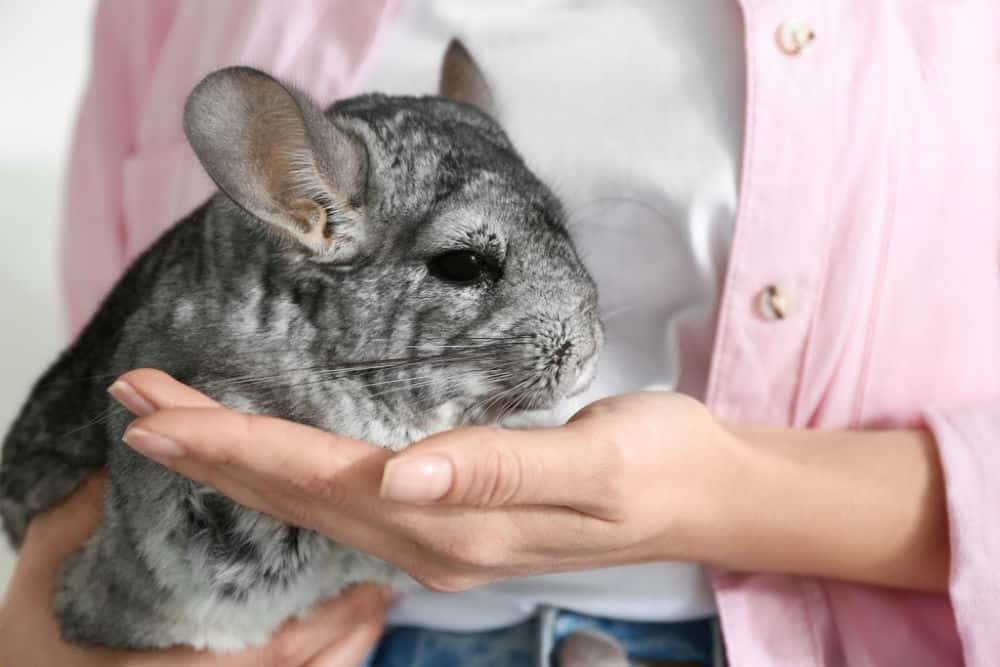
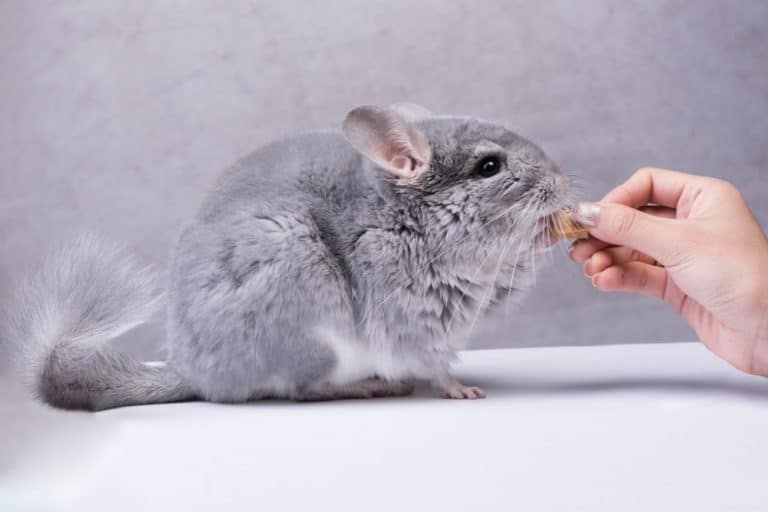
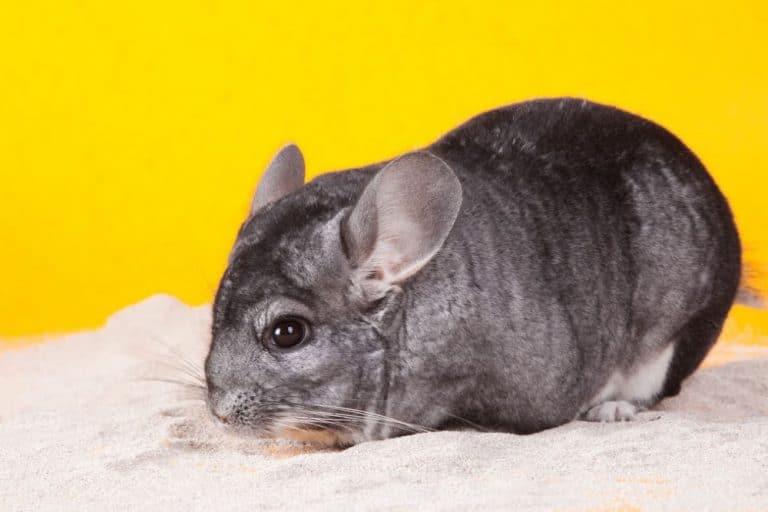
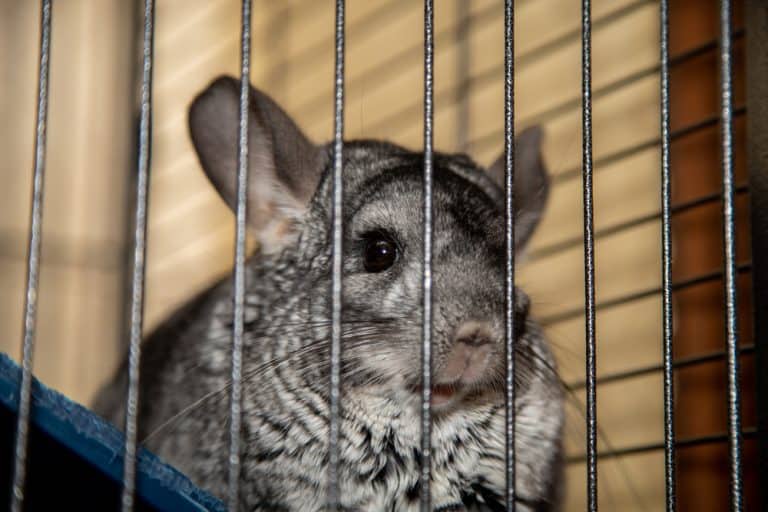
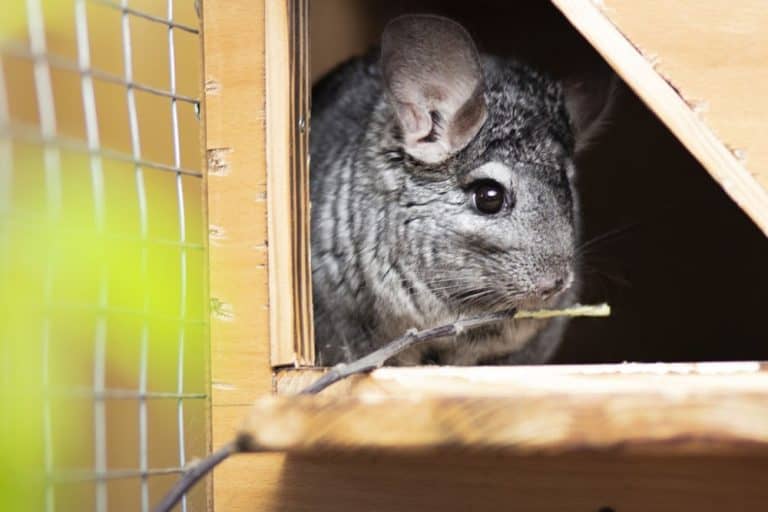
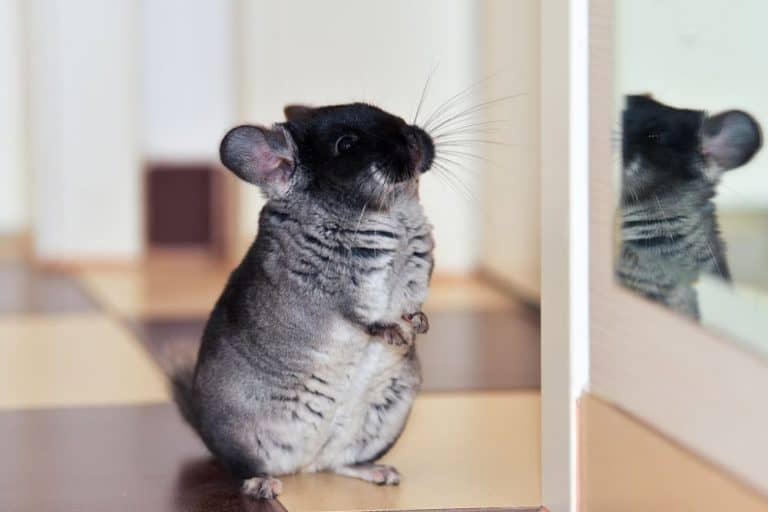
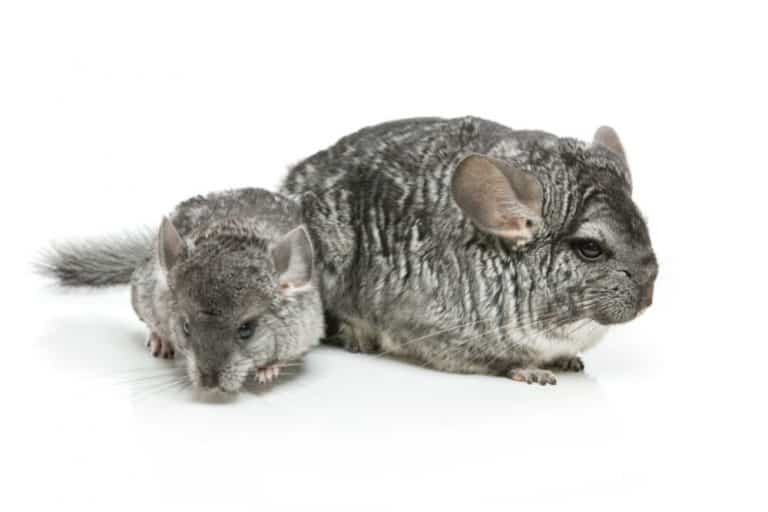

Owning a chinchilla can be a rewarding experience. They are not hard to take care of as long as you do a little bit of research beforehand. Thank you for sharing this very informative post.